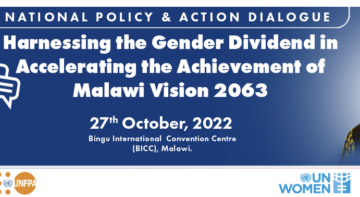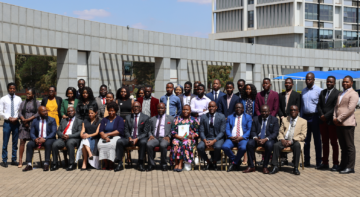Blogs

There are a lot of ongoing efforts around the world to increase the use or consideration of research evidence in public policymaking, the “evidence-informed policy-making’ (EIPM) movement. This is because it is believed that increased use or consideration of research evidence makes important contributions to enabling better resource allocation, more targeted interventions, better monitoring and learning, and ultimately better development outcomes.
A recent study of the role of research evidence in three past policies (developed in the last five years) in the health sector in Kenya has revealed that although the Ministry of Health (MoH) made concerted efforts to use evidence in the policy development processes, the quality of the evidence used was questionable. This raises the question on whether the focus of the EIPM movement now needs to shift emphasis from just “evidence use/consideration’ to “quality evidence use/consideration’?
The study focused on three past policy development processes including the development of the 2010 Malaria Policy, the Kenya Health Policy 2014-2030, and the Adolescent Sexual and Reproductive Health Policy of 2015. The results of each of these policy development processes revealed that the MoH considered the use of evidence in policy formulation as critical to the success of its policies and programmes. As such, it had put in place mechanisms, albeit ad-hoc, that enabled it to access and utilise various forms of the evidence in the three policy formulation processes.
However, a closer look at the results of each of these processes raised questions on the quality of the evidence that the policy decisions were based on. For the most recent of the processes, the Adolescent Sexual and Reproductive Health Policy, the MoH established a policy development task-force, which prioritised the inclusion of research organisations as well as programme implementing organisations. The main reason for prioritising these organisations was to ensure that the policy development process is informed by evidence (provided by the research organisations) as well as lessons from the organisations implementing programmes. The policy development process was also preceded by a study that assessed the performance of the previous adolescent reproductive health policy in order to identify gaps and draw lessons for informing the design of the new policy. In addition, it was also indicated that a key role of the consultant who led the drafting of the policy was to gather and synthesise evidence for informing the policy deliberations and decisions.
While these different mechanisms brought evidence to the policy development forum, there was no mechanism for appraising the quality of evidence put on the table. In fact, any evidence put on the table was discussed on how it should inform the policy decisions without any questioning of whether or not the evidence was rigorous and of high quality. This is problematic, particularly, for evidence arising from programme implementing organisations, which often implement small pilot programmes in some parts of the country. Without these programmes going through rigorous evaluations, the evidence they generate remains questionable. The policy actors involved in the policy development process noted that there were no particular discussions or processes of appraising the quality of the evidence shared by themselves or other actors, or even the evidence synthesised by the consultant.
But, it was the development of the Kenya Health Policy 2014-2030 that revealed the use of the most questionable evidence. The policy, which is the overarching policy framework for the country’s health sector, prioritised the focus of the government on non-communicable diseases (NCDs) in the absence of any credible or scientific local data or evidence to demonstrate that indeed NCDs was going to be the biggest health challenge in the country. Policymakers involved in the study noted that routine data from health facilities in Kenya on NCDs was at best incomplete or missing, which made it hard to conduct any credible projections. Even then, the MoH used the little incomplete routine data on NCDs from just a handful of facilities to conduct projections of NCDs for the whole country. These projections, which showed that NCDs would account for a bigger burden of disease in the 2014-2030 period, then became the basis for the decision to focus the country’s broad policy framework on NCDs.
This decision was made even in the presence of credible evidence that communicable diseases remained the biggest problem in the country and this would remain the case for some years to come. Stakeholders involved in the policy development process observed that the policy focus was largely influenced by the emerging global focus on NCDs, which became pronounced in the Kenya policy formulation process given the influence of some global actors in the policy formulation process. As such, even in the absence of credible local evidence on NCDs projections, the policy prioritised NCDs at the expense of communicable diseases, for which there was credible evidence that they would continue to account for a big burden of disease in the country in the period that the policy was covering.
These findings from Kenya’s health sector show that policymakers in the country are prioritising evidence use or consideration in decision-making, and now efforts to support them may need to focus on strengthening their capacity to appraise evidence before they use it or supporting the process of appraising evidence before it is used or considered in policy formulation processes.
We will be discussing the implications of these findings with the MoH leadership in Kenya later this month, and a comprehensive study report will be published next month.
Rose is the Director of Science Communications and Evidence Uptake at the African Institute for Development Policy (AFIDEP); rose.oronje@afidep.org.
Related Posts




